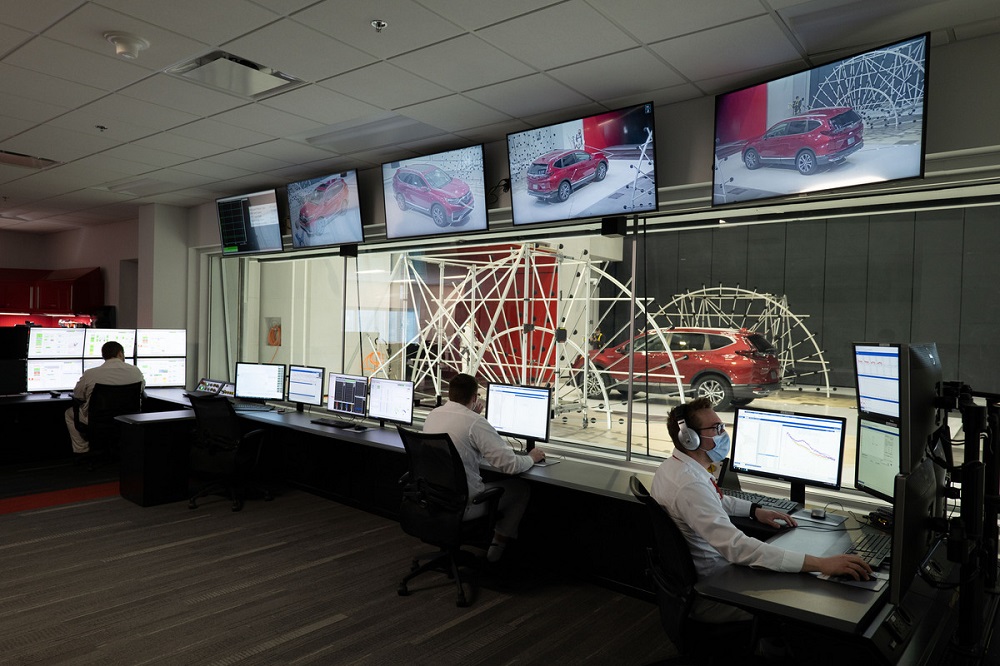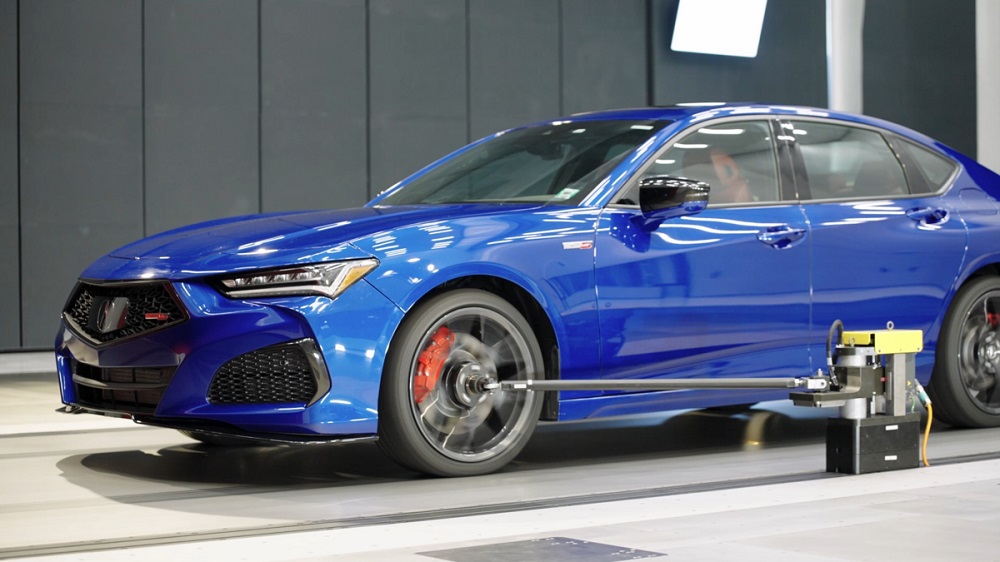The new Honda Automotive Laboratories of Ohio (HALO) facility, located at the independent Transportation Research Center Inc. (TRC) in Central Ohio, is the world's most advanced wind tunnel, with three separate state-of-the art testing functions - aerodynamics, aeroacoustics, and racing - in one location.
Honda created the multifunctional HALO
facility to reinforce its commitment to developing fuel-efficient and
fun-to-drive vehicles. One of the most advanced of its kind anywhere,
the wind tunnel uses a unique interchangeable modular ground plane
system capable of aerodynamic vehicle testing of production vehicles and
race machines.
With a five-belt rolling road system designed for
production vehicle development and a second single wide-belt system for
testing both high-performance sports cars and purpose-built race
vehicles, the tunnel can generate wind speeds of more than 190 miles per
hour.
Even more, the wind tunnel can quickly enable a
sophisticated acoustic test system for an aeroacoustic testing mode that
utilizes a powerful system of acoustic arrays, made up of microphones
and cameras, able to collect real-time data and precision measurement.
This becomes even more important as an element of vehicle design as
Honda moves toward its electrified future.
As Honda continues to
move toward its electrified future, noise reduction becomes an even more
important element in vehicle design. Absent engine and exhaust sounds,
wind noise will be more noticeable inside the cabin of an electric
vehicle. Using the acoustic test system, Honda engineers will be able to
identify the precise locations of both interior and exterior noise
issues more quickly than ever before.
The new wind tunnel,
coupled with the company's advanced safety research center, provides
Honda's R&D engineers with two world-class facilities in Ohio; both
supporting the design and development of products built in America using
domestic and globally sourced parts. This also is an opportunity for
Honda engineers to build relationships with other companies interested
in aerodynamic and aeroacoustic research, support STEM activities, and
sustain the general aerodynamic community's testing needs.
Additionally,
the wind tunnel's aerodynamic test capabilities will help increase the
range and performance of the company's future full-electric vehicles,
supporting Honda's efforts to continually advance its current position
as America's most fuel efficient and lowest CO2 full-line automaker.
The
HALO wind tunnel is Honda's latest major investment in Ohio, where the
company has been advancing its ability to develop and build products for
over 40 years - now totaling $14 billion.













